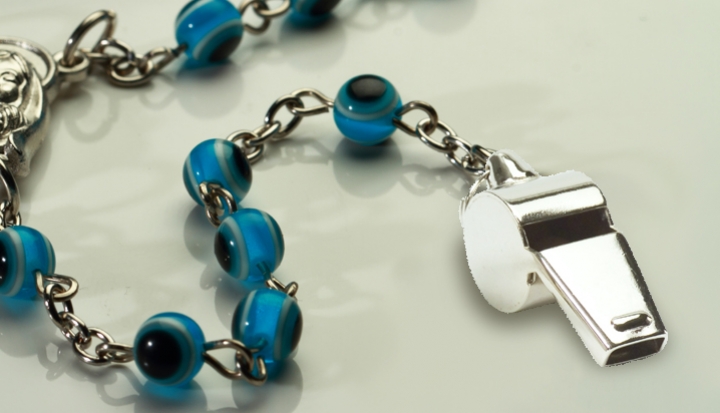As we approach the 11th anniversary of the U.S. Catholic bishops’ Charter for the Protection of Children and Young People, it is no secret that many church leaders are still falling down on the job when it comes to transparency surrounding the sexual abuse of minors and the handling of priests who commit these heinous crimes. We’ve had the saga of Bishop Robert Finn in Kansas City, the recent case of an abusive priest in Newark still being allowed to interact with minors, and examples of bishops failing to provide information and evidence to their own review boards. As former chair of the National Review Board Nicholas Cafardi told us in an interview last year, there’s plenty of room for improvement.
Enter the Catholic Whistleblowers. A new group of Catholic priests, sisters, and laypeople–most of whom were already blowing the whistle on church failures when it comes to sex abuse–have banded together to form a new organization. What started as a support group for those who undergo the pressure (and sometimes, the negative stigma) that comes with being a whistle-blower has now grown into a public campaign to bring about change in the church.
Members of the group offered the New York Times varied responses on what the group’s goals are: seeing those who covered up abuse held accountable, keeping children safe, clearing the church’s name and restoring some level of credibility to those who devote their lives to the priesthood. All important goals, all of which are long overdue in the wake of the abuse that has taken place within the church.
Really, the whistle-blowers aren’t doing anything that the bishops’ own Charter didn’t already call for. Church employees and volunteers who have taken part in safe environment training programs should already be looking for any possible sign of inappropriate behavior on the part of an adult, be they clergy, religious, or layperson, and they are responsible for reporting any suspected case of abuse. Any adult who comes in contact with minors must also be subject to a background check. And anyone who finds these policies not being followed should stand up and say something about it–even if their first phone call has to be to law enforcement.
As the new group of whistle-blowers takes shape, they have an opportunity to spread a very important message. They can recruit members in every parish and diocese. They should receive the support of every bishop who is truly committed to ridding the church of sexual predators once and for all. And every one of us should become a whistle-blower. Our children deserve nothing less.
Image by Angela Cox, original rosary photo from Flickr cc by FateDenied









